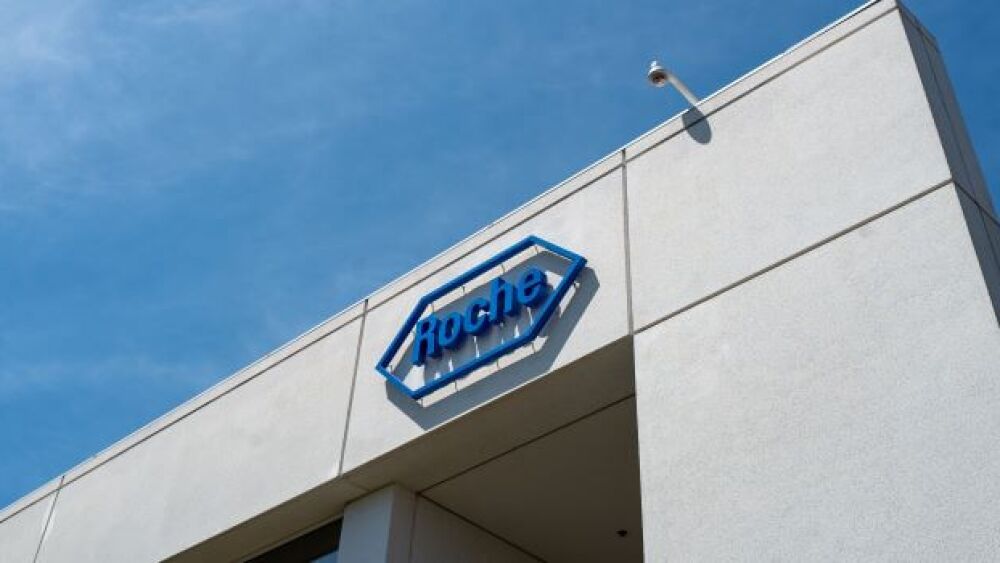As part of its third-quarter report, Roche announced it has cut two Phase II programs, one for hepatitis B and the other for geographic atrophy, a form of eye disease.
Courtesy of Smith Collection/Gado/Getty Images
In its third-quarter report Tuesday, Roche announced it has cut two Phase II programs, one for hepatitis B and the other for geographic atrophy, a form of eye disease.
RG7907 is a core protein allosteric modulator that was developed for hepatitis B. Early data suggested the drug disrupted hepatitis B viral replication, and a Phase I trial in 2019 led the company to believe it could be part of a combination of drugs that could cure the disease.
A Phase I trial was completed in July, and a Phase II trial of the drug in combination with other therapies was ongoing as of August.
Roche Diagnostics has several assays to detect hepatitis B and several pipeline drugs, including RG6084, RG6346 and RG7854.
RG6147 (galegenimab), an anti-HTRA1 anti-binding fragment, was being developed for geographic atrophy.
The Phase II trial launched in June 2019 and as of September, its status was “active, not recruiting.”
Roche also has a very active program for ophthalmological conditions, including macular degeneration and geographic atrophy.
In a statement, CEO Severin Schwan specifically cited Vabysmo. The drug is the first and only FDA-approved treatment that blocks both VEGF and Ang-2 in wet age-related macular degeneration and diabetic macular edema. It was approved in Europe in the third quarter of this year.
Roche’s subsidiary Chugai Pharmaceutical removed a Phase II program of a CHU Oncolytic Type 5 adenovirus for esophageal cancer. These types of viruses are designed to selectively grow in tumor cells, killing them while minimizing disruptions to normal cells.
Other Business Updates
Roche reported 2% sales growth, despite what Schwan in a press conference called “the expected sharp decline in COVID-19-related products in both divisions in the third quarter.
“The demand for our newer medicines for multiple sclerosis, hemophilia, spinal muscular atrophy and cancer remains high,” he said.
COVID-19 drug sales dropped by $1 billion (U.S.) in the first nine months of the year. Those included Ronapreve, an antibody treatment, and Actemra, originally developed for arthritis.
Roche Diagnostics also reported a 40% decrease in COVID-19-related tests year on year to $604,000.
“In spite of increasing incidence rates for COVID-19, we actually don’t see an increase in the demand for COVID-19-related products. It has nothing to do with inventories … there is simply much smaller demand than we have seen in the previous year,” Schwan said.
Clinical trial data for Roche’s Alzheimer’s drug gantenerumab is expected to be published by the end of November, the company noted.
Since the announcement of positive Phase III data from Eisai and Biogen’s lecanemab for Alzheimer’s disease in late September, analysts and investors have been turning their focus to gantenerumab in a suddenly hopeful market.
If anything, Schwan worked to keep expectations low, saying, “It is very dangerous to cross-read on trials. We have to wait for the readout, and then we can take it from there.”
Jefferies analysts were pessimistic, writing in a note to investors that they expect the study to fail.





